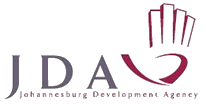Mayor Parks Tau’s State of the City address has emphasised the city’s commitment to the Corridors of Freedom programme which will bring work and amenities closer to all citizens.
Johannesburg Mayor Executive Mayor, Parks Tau believes the Corridors of Freedom programme is one of the ways to promote a “new economic democracy” as the City of Johannesburg (CoJ) implements spatial justice in Johannesburg.
Mayor Tau, delivering his 2016 State of the City address at the Turfontein Racecourse, highlighted Johannesburg’s commitment to the Corridors of Freedom programme which will translate the City’s vision into glass and concrete.
Mayor Tau said the Corridors of Freedom programme is bringing new life to Fleurhof and South Hills, to Kliptown and Jabulani, to Turffontein and Rosettenville.
“To the student halls and shopping squares of Empire Road, to Randburg, Jabulani, Orlando East and Park Station, the Corridors of Freedom are bringing new mixed-use change all along the Louis Botha Corridor, connecting the Inner City, Orange Grove, Alexandra and Sandton,” he said.
The Corridors of Freedom programme intends to change the shape of Johannesburg in the future, making it consist of well-planned transport arteries linked to interchanges where the focus will be on mixed-use development.
Mayor Tau says that as the City develops the Louis Botha Corridor with the rollout of Rea Vaya Phase 1C, the redevelopment of the Paterson Park node in Orange Grove and Norwood has already started. “We are rebuilding a state-of-the-art clinic as part of a high-rise commercial space – redeveloping the public recreation and sports facilities and we have started with the massive revitalization of Paterson Park and its waterways,” he said.
Mayor Tau said the plan is about multi-storey buildings rising along the corridor, combining commercial space, green-space, recreation and cultural amenities, market-rate rentals and social housing. “This means more people across a range of incomes are able to live richer lives much closer to where they can live, work and play,” he added.
The Corridors of Freedom programme, adopted in 2013, is key to Mayor Tau’s Growth and Development Strategy 2040.
Three Corridors have been identified and the first one, Empire-Perth – which runs along western parts of the city, including areas such as Parktown, Richmond, Melville, Coronationville and Westbury – is currently undergoing a naming and branding process.
“Indeed, such a renewal is happening exactly where we now stand – at the heart of the Turffontein Corridor. We are converting the central part of De Villiers Street into a linear park along which retail, small-scale trading and a range of other uses will prosper, with dedicated areas for those cycling and walking,” he said.
Mayor Tau believes this will create new, street-level life in this area. “As our new economic democracy rises, so will Turffontein,” Mayor Tau said.
REA VAYA INTEGRAL TO CORRIDORS
Mayor Tau added that the backbone of the Corridors of Freedom and the enabler of access to rising economic democracy is reliable, affordable and dignified public transport.
“The Rea Vaya Phase 1A and 1B began quality services between Soweto, Riverlea, Noordgesig, Westbury, Auckland Park and the CBD. Currently our passenger numbers are over 50 000 per day. Our trunk route services are almost 100% full during peak hours,” he said.
The City, in support of the Louis-Botha corridor, is currently implementing the third phase of the Rea Vaya system extending it to Alexandra, Sandton, Midrand, Ivory Park and Randburg.
“This will include three new iconic bridges over the M1, two dedicated for walking and cyclists and the third for Rea Vaya. At the Sandton CBD a dedicated loop for all forms of public transport is under construction and dedicated cycling and wider sidewalks are being completed,” Mayor Tau said.
“This will transform Sandton from a car-centred hub into one which can be easily and safely accessed by all commuters,” he added.
Central to the introduction of the Rea Vaya system has been the empowerment of over 400 previously disadvantaged public transport operators, who became shareholders and managers of the Bus Operating Companies.
According to Mayor Tau, “The turnover of the two existing bus companies over the past two years has been R620-million. This, too, is part of our new economic democracy,” he said.

